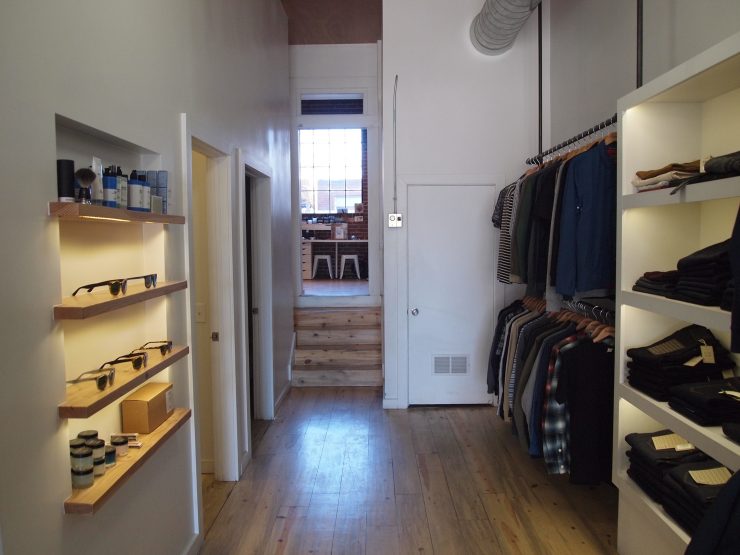
As you walk through the uber-minimal Steadbrook clothing store towards the back room-turned-roastery, you will most likely hear hip-hop music and loud laughter. If success in life amounts to loving one’s job, Dustin Pace and Jay DeRose of MiddleState Coffee in Denver, have reached the heights. Passion and fun, rather than competition, fuel the pair who started MiddleState Coffee in 2013, and who are often known to roast coffee in masks and skateboard in between orders. Visiting the roastery feels more like a hangout session with friends rather than anything else.
The beginning is a classic story for most baristas-turned-roasters: caring more about good coffee rather than drama or conflict, Pace and DeRose wanted to get as far away from the “pretentious barista” stereotype as possible. Both had gone through the motions of becoming “those” baristas and became sick of working for someone else. They wanted to create something of their own and explore the roasts they found interesting.
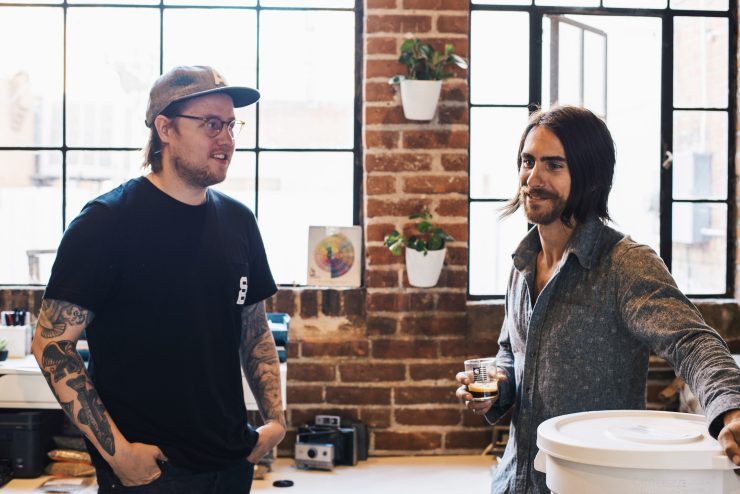
The company started in 2013 in the men’s fashion store’s back room when DeRose was sample roasting and working as Director of Sales for Ninety Plus coffee while working at the store. Steadbrook’s goal was to create a store where people came to hang out rather than simply buy, and coffee served as an icebreaker into community—partnering with DeRose’s new coffee project was a perfect fit. Pace’s wife Samantha Kogle, a graphic designer by trade, helped the two create a specific brand for the company alongside Scott Allen Hill at Mast, evidenced by the crisp, simple designs of the black packaging and logo. They understood that even with the best tasting coffee, without a compelling packaging and narrative, it would be hard to draw the attention of today’s consumers.
“Our motivation was to have the branding be consistently at the same level of our coffee. Everything at its best. We were always asking ‘how can we tell the story correctly?’” DeRose said.
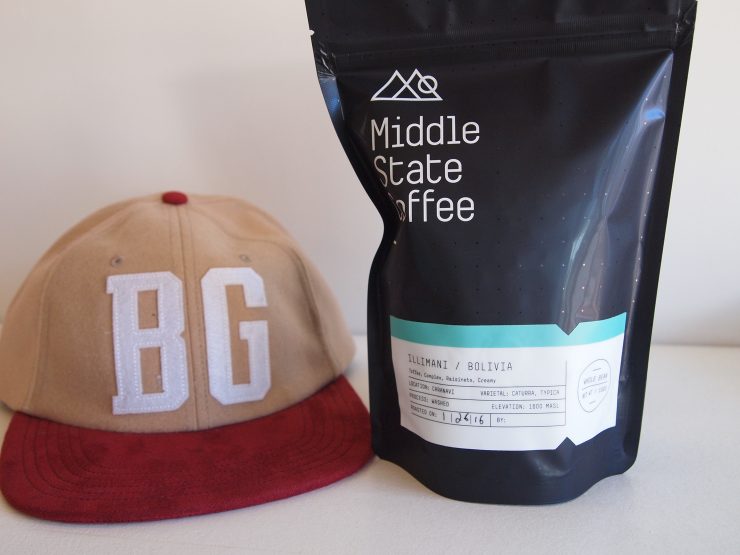
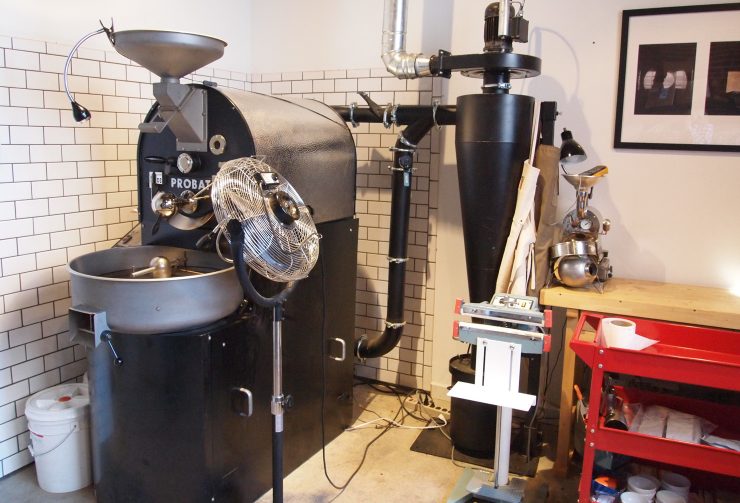
While in the small industry of specialty coffee there is bound to be competition, MiddleState focuses on taking the coffee buying seriously but not themselves too seriously. There is no attempt to poach accounts from other people or to overcrowd the growing market in Denver. “We focus out-of-state for [wholesale] accounts,” said Pace. “It’s just Jay and I, and we have a few solid accounts ordering from us every week,” Pace remarks. Little Owl Coffee in Denver is their mainstay, where both Pace and DeRose will get behind the bar from time to time.
When it comes to coffee, DeRose emphatically praises the rising level of the industry: “Everyone roasts pretty damn good. I love buying green coffee and try to take the same approach of buying coffee the same way I drink coffee. I try my hardest to not buy coffee that any other roaster will bring into Denver. We want to add diversity.”
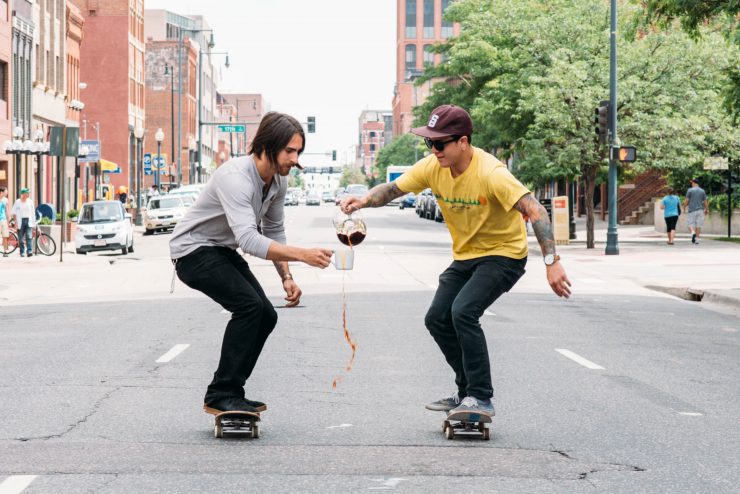
What sets MiddleState apart, however, is DeRose’s unique approach to green coffee buying and tasting. Under the tutelage of Ninety Plus coffee, DeRose learned the ins and outs of high-level coffee buying: “I learned everything from them. I learned what questions to ask when buying when you don’t have the tools to test the coffee, how to conduct yourself with international business, shipping and logistics, and a completely new way to taste coffee.” Praising the owner, Joseph Brodsky, DeRose emphatically insists that Brodsky taught him not only about coffee but also how to treat people with respect and integrity.
“They do everything so differently than SCAA standards, and that heavily influenced me,” said DeRose. “Because of Steve Holt, I learned to taste coffee quickly while writing quickly. The type of tasting they do is almost like a mind exercise. It trains your mind to think quickly as you move through the coffee’s entire lifespan. We’re not waiting 13 minutes or so to taste the coffee, we’re tasting it every 30 seconds.” DeRose said this made him a disciplined taster and acquainted him with the entire sensory process of green coffee.
“It sounds funny, but it made me almost… spiritually in touch with the coffee. Ninety Plus has a very intimate sensory session that requires each participant to present a piece of inspiration to the group beforehand. Because of this, I now put myself in a mind-state of intent before I taste the coffee.”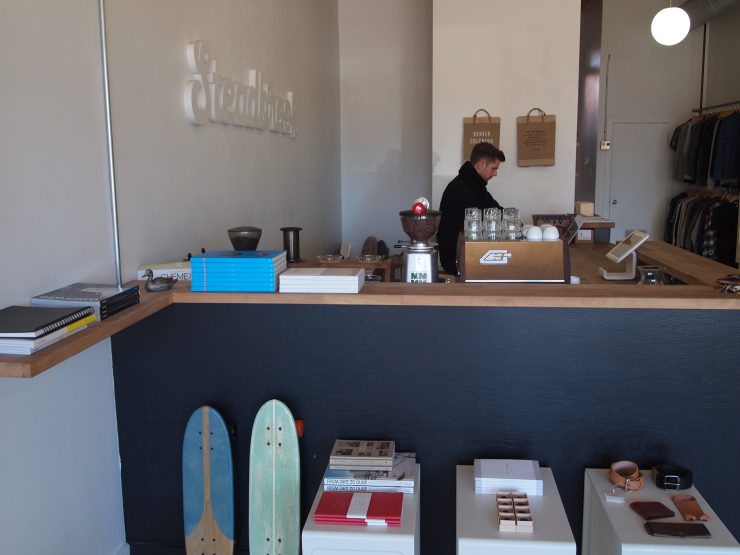
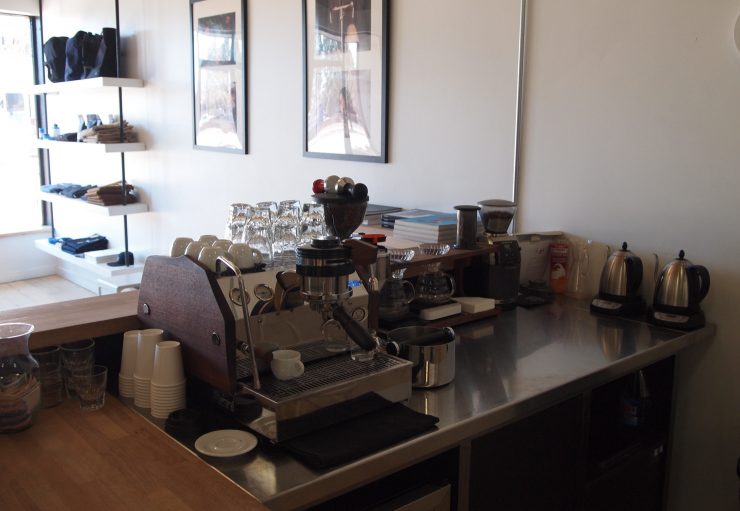
Almost at capacity, roasting up to 400 pounds a week on a small Probat machine, MiddleState has found a new space to expand into just down the road. With a new 15-kilo Probat from the 1950s on the way—their “dream machine” as they call it—and a two-barrel Probat sample roaster, the company is excited for their expansion, which will include a tasting room. They hope to get a Kees van der Westen Speedster and build a large retail wall full of hard-to-find barista items: tampers, cupping equipment, skateboard decks, aprons, and more.
When it comes to current coffees, DeRose holds up a coffee sourced from Bolivia, a very “sessionable” brown sugar-tasting coffee. “It’s funny,” DeRose chuckles, “I grew up in the West with these Western folklores about Butch Cassidy and the others. Well, in Butch Cassidy and the Sundance Kid, they escape to Bolivia and, since then, I’ve had all these romanticized ideals about Bolivia. I swear for about a year, I’ve been obsessively searching for a great Bolivian coffee.”
For Denver’s sake, let’s hope this pair doesn’t escape anytime soon.
Visit their official website and follow them on Instagram.
Haley Littleton is a freelance journalist and coffee professional based in Denver, Colorado. Read more Haley Littleton on Sprudge.
The post MiddleState Coffee: Denver’s Fashionably Great Roastery appeared first on Sprudge.

